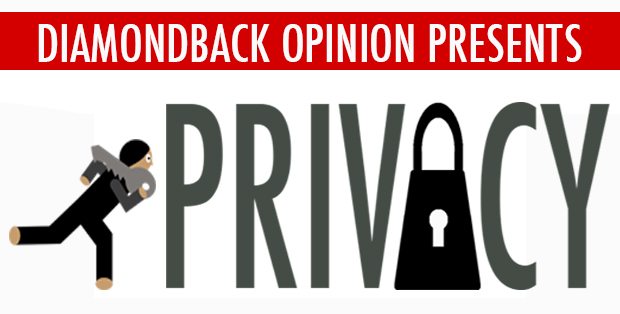
Discussing Internet privacy
By its very nature, the secretive National Security Agency exists to protect Americans. But last year, Edward Snowden’s leaks shed light onto an organization that can be invasive and occasionally dismissive of Americans’ privacy rights.
Fortunately, these revelations have led the Obama administration to pursue reforms and better transparency for the agency. Yesterday, the president formally announced a plan to end the National Security Agency’s collection of bulk telephone records.
“Having carefully considered the available options,” Obama wrote in his statement, “I have decided that the best path forward is that the government should not collect or hold this data in bulk.”
This decision marks a reversal for the president, who defended the program in a January speech by explaining that it only collects “metadata” — just phone numbers and the times and duration of calls, not actual call content.
“In sum,” he explained, “the program does not involve the NSA examining the phone records of ordinary Americans. Rather, it consolidates these records into a database that the government can query if it has a specific lead — phone records that the companies already retain for business purposes. The Review Group turned up no indication that this database has been intentionally abused. And I believe it is important that the capability that this program is designed to meet is preserved.”
If Obama’s proposal passes Congress, the program’s capability will be preserved — just in a more transparent fashion that respects Americans’ privacy. Under the law, NSA would have to ask the secret Foreign Intelligence Surveillance Act Court for a warrant before requesting data from phone companies about additional information.
This is how the NSA should work. The agency’s once-unlimited freedom would be curtailed by fair checks and balances. Phone records would be property of phone companies, not the government, and the government could request access through a legal, although still secretive, process.
In a statement from the American Civil Liberties Union, Edward Snowden supported the proposal: “This is a turning point,” he said, “and it marks the beginning of a new effort to reclaim our rights from the NSA and restore the public’s seat at the table of government.”
This editorial board does not wholeheartedly support all of Snowden’s views and intentions. Sometimes, the NSA has perfectly good reasons to conduct its operations in secret, and despite what some people believe, the agency is not reading our text messages and listening to our phone calls. But on this one, he’s right. If a change can be made that makes the agency operate in a more fair, respectful and transparent manner, it should be made.
Obama has been criticized for bringing this proposal to Congress when he could end the metadata collection program without legislative action. According to Sen. Patrick Leahy, the chairman of the Senate Judiciary Committee, the president could simply “end bulk collection once and for all on Friday by not seeking reauthorization of this program.”
This criticism is valid. Obviously, the move to bring a vote to Congress is primarily a political decision. Republicans in Congress have used the NSA revelations as an attacking point against Obama and “big government.”
Now, he’s giving them an opportunity to end one of the unpopular programs they frequently criticize. But because Republicans in Congress tend to aggressively oppose proposals Obama makes, they’ll have to decide which side to take.
Hopefully they do the right thing and end the invasive program. And if they don’t, the president should still do the right thing and end it himself.
[ READ MORE: Implications of Internet privacy ]



